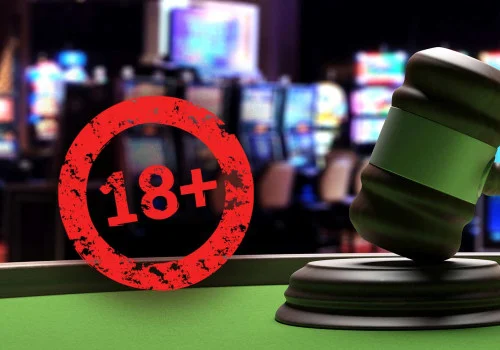How To Cheat Slot Machines
Throughout the history of slot machine gaming, a myriad of players have sought to outsmart these seemingly fool-proof mechanisms. Some, with their crafty strategies and unwavering determination, have indeed succeeded in their cunning endeavours. These audacious individuals, armed with ingenuity and an unquenchable thirst for triumph, managed to tilt the scales of fortune in their favor, effectively beating the system at its own game. However, this narrative must be framed within the context of ethics and legality – while these tales of guile and subterfuge may be fascinating to recount, they are by no means a handbook for aspiring cheaters. In the following sections, we shall delve into the intriguing world of those who managed to deceive slot machines, not as an endorsement of such practices, but as a captivating exploration of human ingenuity running wild within the realm of gaming.
Tommy Glenn Carmichael: Slot Machine Hacks
In the 1980s, Tommy Glenn Carmichael became famous for his “monkey claw” device, which spun deceptive mechanical slot machines for him into giving out a jackpot. With the advancement of technology and the move to electronic machines, Carmichael created a “light block” that blocked the machine’s sensor, causing it to dispense coins. However, in 1999 he was convicted and sentenced to five years in prison. After serving his sentence, Carmichael claimed to have put his life of crime behind him.
Ron Harris: A Programmer Who Came to the Dark Side
Ron Harris is a name that has long been the talk of the Nevada gaming industry. In the 1990s, Harris served as a programmer for the Nevada Gaming Commission. His main job was to test and ensure the integrity of slot machine software. However, he used his position and knowledge to create a secret code that later allowed him and his accomplices to cheat slot machines.
Knowing how RNGs (random number generators) and other machine inner workings work, Harris was able to implement his code, which allowed him to predict when and where the jackpot would be paid out. This gave him the opportunity to take large sums of money from various casinos throughout Las Vegas.
His actions went unnoticed for several years. Harris managed to cheat the system and earn hundreds of thousands of dollars. However, like many scammers before him, he made a mistake that led to his exposure. In 1995, he tried to hack the Keno slot machine, but his plan was discovered and he was arrested.
Hacking Random Number Generators: Russian RNG Scam
Random number generators (RNG) are the heart of most modern slot machines and online casinos. They ensure that every spin is random and ensure that every game is fair and unpredictable. However, it was their work that came to the attention of a group of Russian hackers in the 2000s.
This group, consisting of several individuals, began to study the mechanics and algorithms of RNG in old models of slot machines. Their goal was to predict what combinations would appear in the next spin based on the already known results of previous spins. This required deep knowledge in mathematics and programming.
Hackers developed a mobile application that analyzed video recordings of spins. When one of the group members played the slot machine, the other recorded the results of the spins on the camera of his smartphone. The app then analyzed these entries, predicting what combinations to expect in upcoming games.
This method was so accurate that the group was able to earn hundreds of thousands of dollars by defrauding casinos in different countries. For a long time, casinos could not understand the reason for their success, since RNG fraud seemed impossible.

Online Slot Fraud
Online casinos attract millions of players around the world with their accessibility and convenience. However, this popularity also makes them attractive to scammers and hackers. When playing on the Internet, attackers have many opportunities to try to deceive the system.
- Using Bots
One of the most popular hacking techniques is to create programs that automatically play slots or other casino games. These bots can be customized to specific betting strategies and run 24/7, giving scammers a small but consistent advantage.
- Software Hacking
Some hackers try to hack casino software directly and make slot machine cheats. Once they gain access, they can change the mechanics of the game in their favor or even transfer money to their accounts.
- RNG Substitution
Just like in real casinos, RNG is a key element in online slots. Some scammers try to interfere with the RNG to predict or change the results of the spins.
- Bonus abuse
This technique involves registering accounts multiple times to receive welcome bonuses, which are then deposited and withdrawn.
One of the most famous cases of fraud was an attack on a large online casino in the early 2010s. A group of hackers were able to gain access to casino servers and change the settings of some slots so that the probability of hitting the jackpot was much higher. Before the casino noticed the anomaly, the scammers managed to withdraw more than a million dollars.
Such incidents highlight the importance of a high level of security for online casinos. Since then, many casinos have invested heavily in strengthening their security systems, introducing two-factor authentication and other measures to protect their customers and their businesses.
However, as in any other area where big money is circulating online, there will always be some risk of fraud. This reminds players to be on their guard and choose only reliable and licensed online casinos for their games.



